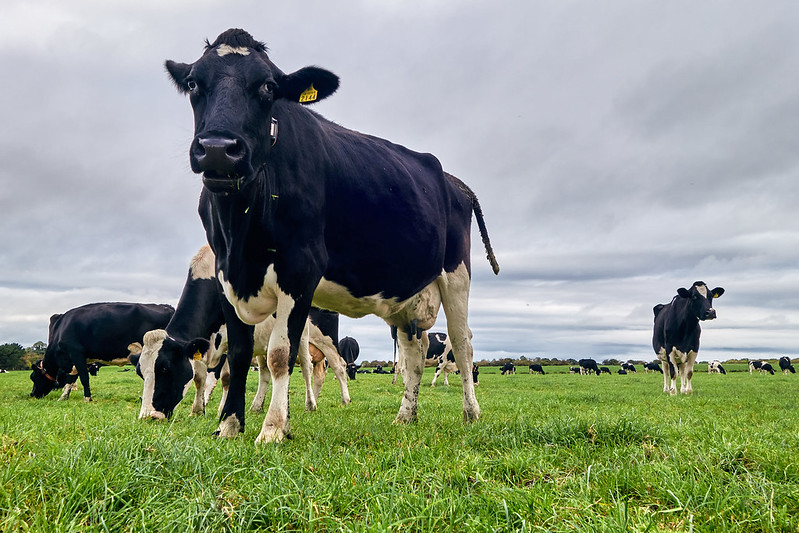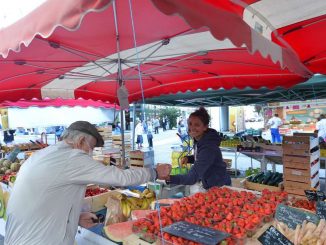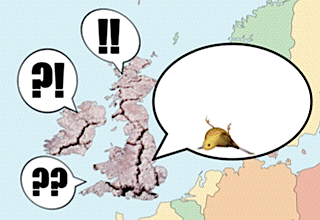
Ireland’s Environmental Pillar – the country’s leading coalition of environmental NGOs – today withdrew from the Department of Agriculture’s Agri-Food Strategy Committee after concluding that the draft Strategy is “woefully inadequate to meet the social and environmental challenges we face.”
The Environmental Pillar had been a member of the Irish Department of Agriculture’s Strategy Committee for over a year. However, the group states that despite a large volume of input from its experts, the draft 2030 Agri-Food Strategy “falls far short of what’s required to bring agriculture in line with planetary boundaries and did not facilitate any meaningful public participation on the future of Irish land use.”
The soon-to-be-published draft Strategy is a follow-up to Ireland’s current agri-food strategy Food Wise 2025, and, according to the Environmental Pillar, “rather than orchestrate the ecological transformation we need for agriculture and assure a future for all farmers, the 2030 Strategy perpetuates the business-as-usual model of intensification pursued for the last 10 years.”
“We cannot put our name behind the perpetuation of the environmental crises…”
Karen Cielsielski, the co-ordinator of the Environmental Pillar and former representative on the Agri-Food Strategy Committee 2030, said:
“[This industry-led Agri-Food 2030 Committee and Strategy] fails on so many fronts, and we cannot put our name behind the perpetuation of the environmental crises we have highlighted time and time again. We engaged in the process of drafting this strategy in good faith, but found that our suggestions were largely disregarded. Such treatment of these issues is misaligned with growing calls for climate and biodiversity action, which we know grow louder every day. As a matter of urgency, it is now up to the Government to take full responsibility for agricultural policy to radically change course to cut both emissions and pollution within the sector and support farmers in a Just Transition which also supports biodiversity.”
In a letter notifying Ireland’s Minister for the Environment and Green Party Leader Eamon Ryan of its withdrawal, the Environmental Pillar recommends that the draft Strategy process “should go back to government and the drawing board to be reset, with authentic sustainability at its core”.
What are the problems with Ireland’s draft Agri-Food Strategy?
The Environmental Pillar outlines a number of deficiencies it identified in the draft 2030 Agri-Food Strategy:
- It lacks many key policy drivers, including the means to reverse the downward trajectory of environmental indicators associated with agricultural practices. Agriculture is Ireland’s largest source of greenhouse gas emissions. It is also the leading cause of pollution of Irish waters. In addition, intensification has resulted in the catastrophic decline of farmland birds such as breeding waders;
- A business-as-usual approach will not reverse these trends, as the Director-General of Ireland’s Environmental Protection Agency (EPA) Laura Burke has warned;
- Farmers have been let down by past agriculture strategies. In a Department of Agriculture survey, less than 20% of primary producer respondents agreed that Food Wise 2025 could deliver on its vision of thriving producers and industry;
- The commitments of the draft Agri-Food 2030 Strategy are vague and lack concrete actions to shift the Irish agriculture sector away from its predominantly livestock based model;
- The draft Strategy enshrines Ag-Climatise – the national Climate & Air Roadmap for the agriculture sector – as the guidepost for achieving emissions reduction. However, the Environmental Pillar and other experts have found Ag-Climatise to be inadequate, and the Department for Agriculture itself has recognised that it would need to be revised in light of more ambitious government targets to reduce emissions;
- The Environmental Pillar finds no coherent Department of Agriculture vision in the draft Strategy “to embrace agroforestry and a transition towards continuous cover permanent native forestry model to replace the unsustainable clearfell/replant exotic conifer model”;
- Climate and biodiversity NGOs maintain that they were given only a “limited space at the table”.
Broken Promises
At the first meeting of the Agri-Food Strategy Committee in November 2019 Ireland’s then Agriculture Minister Michael Creed said, “I am sure that environmental sustainability, including climate, biodiversity and water, will be a key issue to be considered by the Committee. Equally, expanding our footprint globally; innovation; and competitiveness will be priorities for the industry. Primary producers are an essential part of the economic and social fabric of Ireland; it remains a priority for us all to enable them to produce food in an environmentally sustainable and economically viable way”.
Describing a lack of change between Ireland’s Food Wise 2025 and the draft 2030 Agri-Food Strategy, Oonagh Duggan of the Environmental Pillar and BirdWatch Ireland said:
“The mantra for Food Wise 2025, was that ‘environmental protection and economic competitiveness are equal and complimentary: one will not be achieved at the expense of the other’. This turned out to be false, and a breach of promise to the people of Ireland. There has been a marked decline in the quality of our environment, and the draft Agri-Food Strategy 2030 shows no let up on business as usual. This will lead to further deterioration of our environment and breaches of a range of legal obligations”
There are also clear growth plans for the controversial dairy sector in Ireland, which has already seen significant growth since the ending of milk quotas in 2015. Irish state agri-research agency Teagasc has set a target of 1.65 million dairy cows, up almost 200,000 from today, in its Road Map 2027 for Dairy
The incompatibility between growth oriented, export driven agri-food strategies and the protection of biodiversity marks Ireland’s agriculture development framework. As Duggan notes, “The National Biodiversity Forum in its recent audit of the National Biodiversity Plan stated that conflict between sectoral policies and biodiversity is a primary driver of biodiversity loss. We have an opportunity to rebalance agriculture now in line with environmental objectives and we call on the Government to do so”.
“More and more consumers want food that is produced in a way that works with nature and not against it. Our high nature value farmers have a low-intensity model of production that supports biodiversity and which fits into a future where we will have to eat less meat and dairy in order to cut the impact of agriculture on the natural environment. They need our support”, Duggan adds.
An Alternative Vision
The Environmental Pillar proposes that a strategy for Irish agriculture and food towards 2030 “should guide the sector towards sustainability, viability, and better public health. However, to do this, the strategy must deliver early, steady and permanent cuts in greenhouse gas emissions and air pollution, protect and restore water quality and biodiversity, and safeguard farmers’ livelihoods and the rural economy. It should clearly state targets and milestones of how we achieve these goals.”
In the coming days the Environmental Pillar is expected to publish an alternative vision of agriculture based on principles including the protection of small farmers, the upholding of climate obligations and the restoration of the depleted natural environment.
The Environmental Pillar has said that it remains open to continued engagement in public consultation and future dialogue with the Department of Agriculture.





